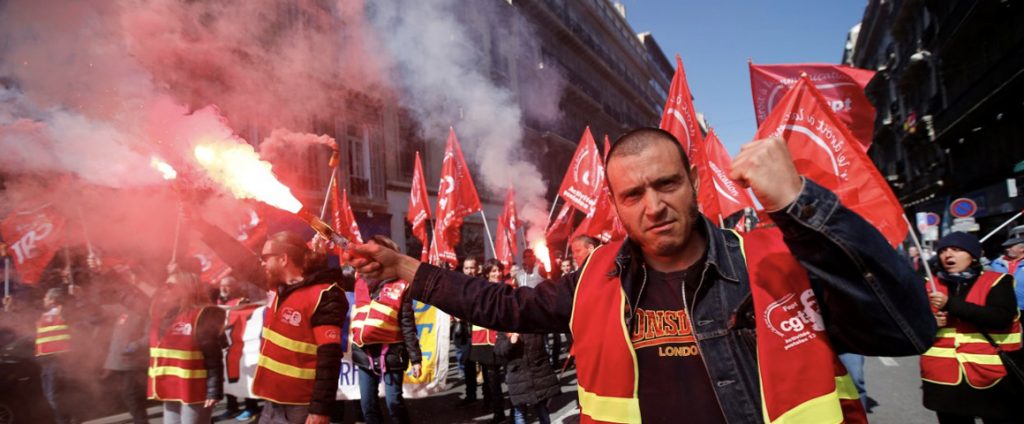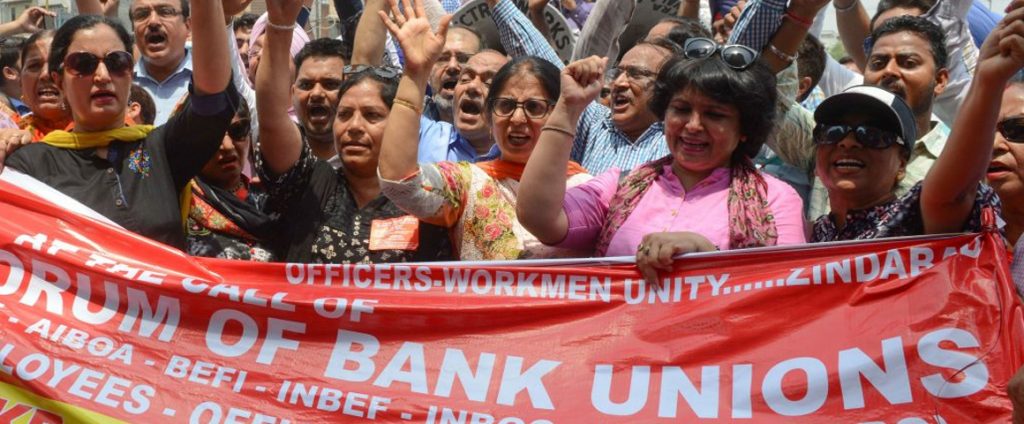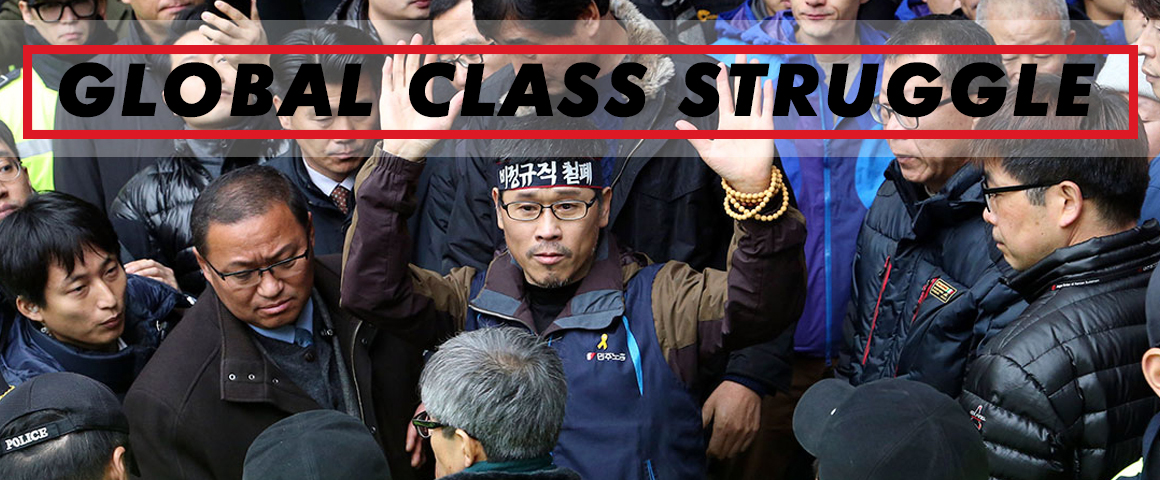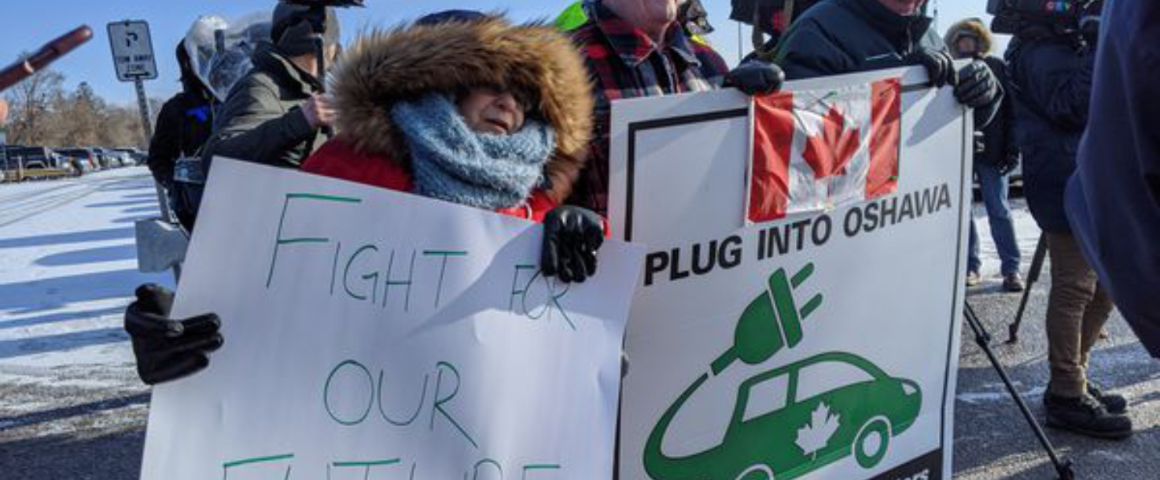Trump hits federal workers
Donald Trump has signed executive orders to make it easier to fire federal workers for alleged poor performance and misconduct, and limiting the amount of time certain federal workers can spend on union business. US trade unions immediately criticized the moves.
The executive orders call for negotiating “smarter contracts” with federal employee unions. Agencies are also encouraged to wrap up labor negotiations in less than a year to limit the cost of “drawn-out” bargaining. Contracts are to limit to 25 percent the amount of time federal employees who are authorized to work on behalf of a union can spend on union business during work hours. The order cuts back on lobbying or pursuing grievances against an agency on taxpayer-funded union time. Agencies will also be able to collect rent from employees who use federal office space for union business.
The American Federation of Government Employees criticized the moves as an attempt by Trump to strip federal employees of their right to representation in the workplace. The union represents 700,000 workers in the federal government and the District of Columbia.
“This is more than union busting. It’s democracy busting,” said J. David Cox Sr., the union’s national president. “These executive orders are a direct assault on the legal rights and protections that Congress has specifically guaranteed to the 2 million public-sector employees across the country who work for the federal government.”
Cox said workers will be deprived of their rights to address a host of workplace issues, ranging from sexual harassment to retaliation against whistleblowers to improving on-the-job health and safety.
Gender bias still remains
In many developing ones discrimination remains overt, according to a World Bank report stating that women are barred from certain jobs in 104 countries.
Gender equality in labour law is associated with more women working and earning more relative to men, says the report. Yet some countries publish lists of jobs deemed too dangerous for women. Russia’s 456 include driving a train or steering a ship. Others stop women from working in entire sectors, at night or in “morally inappropriate” jobs (in Kazakhstan women cannot bleed or stun cattle, pigs or small ruminants). In four countries women cannot register a business. In 18 a husband can stop his wife working.
The aim is often to protect the “weaker sex”. Some laws put women in the same category as children; they concern jobs seen as physically tough, such as mining, construction and manufacturing. Others relate to broader safety fears. In Mumbai, for example, female shopkeepers cannot work as late as male ones. Other laws are intended to protect capacity to bear children.
Restrictions on night work originated in England during the Industrial Revolution, based on the idea that women were weaker and more vulnerable to exploitation than men, but also lacked competence to make valid choices. In 1948 the International Labour Organisation (ILO) still sought to keep women away from mines and industrial nightwork. Spain did not lift restrictions on female workers in mining, electricity and some construction jobs until 1995. Some bans on women’s work still in place in former colonies are remnants of the 1960 Spanish Civil Code, the Napoleonic Code or Commonwealth laws.
Some sex-specific restrictions are called for, says the ILO, as in the case of pregnant and breast-feeding women when working with chemicals. Such temporary and specific precautions are not counted in the World Bank’s study.
Amazon Italy workers win contract
Amazon employees in Italy have made history, announcing the first-ever direct agreement between unions and the company anywhere in the world. The Italian agreement tackles inhumane scheduling, one of the core labour problems at Amazon fulfilment centres globally.
The deal, which is supplementary to Italy’s nationwide sectoral collective labour agreement, ensures fairness in scheduling through reductions in mandatory night shifts and distributing weekend work in a just way. Amazon is notorious for long hours, punishing quotas, and little break time during shifts. In some facilities, workers say they do not have time to even use the restroom.
Italian union Filcams Cgil Nazionale played a leading role in the negotiations.
“We are pleased with this result which is currently unique in Europe,” said Massimo Mensi, a leader in Filcams Cgil Nazionale’s Amazon campaign. “We hope it will pave the way for many other negotiations in all the countries where Amazon has its operations. The agreement provides that night work is initially carried out only by voluntary employees, providing, among other things, an increase of 25% of the compensation under the employment contract.”
Workers are guaranteed four consecutive free weekends every eight weeks and shifts alternate between Saturdays and Sundays. The win in Italy comes after months of protests and organising by workers, including coordinated strike activity with German workers in November 2017. The agreement, approved by a large majority of voting workers, will run for one year starting June 17, and the union will closely monitor the results.
Korean labour leader released
The Korean Ministry of Justice has announced that Han San-gyun, former president of the Korean Confederation of Trade Unions (KCTU), will be released from prison on parole. Han was imprisoned almost three years ago for organising union protests under the corrupt regime of former Korean President Park Geun-hye.
For the past three years, millions of workers across the world called for the release of Han Sang-gyun, after he was jailed after leading mass mobilisations against the repressive labour law changes of the former government. While the government of Korea has taken an important step, former KCTU general secretary Lee Young-joo remains in detention for her role in the peaceful protests that brought down the former government.
 French strikes as cuts loom
French strikes as cuts loom
Galled by years of public sector pay curbs and President Macron’s neoliberal economic program, France’s labor unions urged civil servants, hospital staff and other state employees to stop work on May 22 and join nationwide street protests. Unions call the president’s plans an attack on civil servants and economic security.
“Thanks to the civil service, all of the unions in this country will be together,” said Bernadette Groison, of the national education syndicate, the FSU, France’s largest labor alliance. “That shows how high the stakes are.”
Nine trade union federations have called on public servants to go on strike against Macron’s policies. The May 22 walkouts affected schools and day care centers, flights and some energy infrastructure and disrupted public transport. Civil aviation authorities advised airlines to cancel 20 percent of flights to and from Paris Orly, Lyon and Marseille airports.
Since early April, workers for the national rail carrier, SNCF, have kept up rolling strikes to protest Macron’s plans to do away with long-established labor guarantees for train employees. A separate series of one and two-day strikes for a pay rise to make up for years of wage freezes has disrupted Air France services since February. Even police officers have joined the strikes, snarling traffic on the ring road surrounding Paris to defend their status and retirement benefits.
The president, a former investment banker, froze public sector workers’ pay earlier this year, and he plans to cut 120,000 public sector jobs by 2022.
Bus drivers protest in Hong Kong
Bus driver unions in Hong Kong say they will “not rule out” a strike in an ongoing work-to-rule protest against 14-hour shifts.
Sze Man-wai, president of the Federation of Bus Industry Trade Unions, which represents drivers from the city’s three largest franchised bus companies, estimated about 5,000 drivers took part in a May 26 industrial action. The protest began with the first buses of the day and ran until 10 am. Drivers did not drop off or pick up passengers until their vehicles were completely inside designated areas at bus stops. Other rules were less stringently enforced. Journeys continued even when overcrowding caused some commuters to cross a yellow warning line near the driver, and passengers carrying oversized luggage were still allowed to board.
There are about 13,000 bus drivers in Hong Kong, including the Discovery Bay, Lantau and Park Island bus companies. The drivers were unhappy with the Transport Department’s revised work hour guidelines following one of the deadliest bus crashes in Hong Kong’s history. A KMB double-decker flipped on its side in Tai Po days before the Lunar New Year, killing 19 passengers and injuring 67.
The federation said earlier that a “special shift” arrangement, which allowed drivers to work up to 14 hours a day, should have been removed from the revised guidelines. It argued keeping the arrangement meant drivers could still be overworked.
Lisbon dockers overtime strike
The dockers of the Port of Lisbon started a two-week overtime strike on Monday, May 21. Their union, SEAL, banned work beyond the normal period on working days, and for all work on Saturdays, Sundays and holidays until June 2. The union had earlier expressed “moderate optimism” about reaching a deal.
Then, according to SEAL, the Yilport group (based in Istanbul, Turkey) suddenly stepped up its anti-union practices, declaring that the strike would be an “unwarranted absence”, and that any worker who was late due to any union meeting would be prevented from resuming work in the following 24 hours.
The union asked these and other “anti-union practices” to be reviewed by the Public Prosecutor’s Office, listing several examples in the strike notice, which added that the stalemate in negotiations was also due to issues related to wage rises and the distribution of work at the port.
 India bank workers to strike
India bank workers to strike
Employees of various state-run banks will go on a two-day nationwide strike beginning May 30, in protest against a nominal 2 percent wage hike offered on May 5 by the Indian Banks’ Association (IBA). The IBA also seeks to limit negotiations on some issues to “scale III” bank workers only, which has angered employees.
Government policies and decisions have been the cause of losses incurred by some of the banks, and employees are not responsible, according to United Forum of Bank Unions’ (UFBU) convener Devidas Tuljapurkar. UFBU is an umbrella body of nine unions, including All India Bank Officers’ Confederation, All India Bank Employees Association, and National Organisation of Bank Workers.
The union leader said that bank employees have worked tirelessly in the last two-three years for implementation of government initiatives on demonetisation, pension reforms, etc., without being rewarded for their hard work. In the last wage settlement, for the five-year period of 2012-2017, the unions had won a pay hike of 15 percent.

In a union? Have a labour story? Get in touch with us!
Write pvoice@telus.net with “Global Class Struggle” as the subject.




